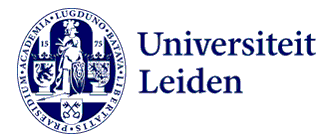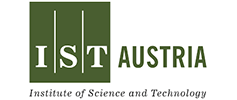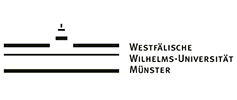Revisiting Liberal Democracy and Asian Values in Contemporary Indonesia
DOI:
https://doi.org/10.31078/consrev415Keywords:
Asian Values, Indonesia, Liberal DemocracyAbstract
This paper aims to examine the complex and often contentious relationship between constitutionalism and integralism in the Indonesian government and provides a criticism of democratization within the contemporary state. Integralist state portrays the relationship between the state and the people as analogous to a family, with the state as a father and the people as children (the Family Principle). Those that adhere to this view, with regard to contemporary Asian politics, claim that Asian values are inherently integralist, that Asia’s particular history and values different considerably from the West’s, and that Pancasila, Indonesia’s state philosophy, is utilized to establish romanticized relations between the ruler and the ruled. The data presented in this paper was collected from relevant articles on Indonesian democracy and Asian values. It also demonstrates how Pancasila, as Indonesia’s core guiding philosophy, has influenced debates over how the constitutional should be applied and interpreted. As the research shows, during the regimes of Sukarno and Suharto, Pancasila was manipulated in order to promote the goals of the state, and that a reliance on integralism during Indonesia’s founding years severely diminished human rights and Indonesia’s capacity for an efficient democracy. By continually putting the priorities of the state above those of the people, the Indonesian government has contradicted its adoption of human rights and liberal democracy is often challenged by the spirit of integralism.References
Abdulbaki, Louay. “Democratisation in Indonesia: From Transition to
Consolidation.” Asian Journal of Political Science 16, no. 2 (August 2008):
151–72. https://doi.org/10.1080/02185370802204099.
Aspinall, Edward. “Democratization and Ethnic Politics in Indonesia: Nine
Theses.” Journal of East Asian Studies 11, no. 2 (2011): 289–319.
———. “Oligarchic Populism: Prabowo Subianto’s Challenge to Indonesian
Democracy.” Indonesia 99, no. 1 (2015): 1–28.
Barr, Michael D. “Lee Kuan Yew and the ‘Asian Values’ Debate.” Asian Studies
Review 24, no. 3 (2000): 309–334.
———. “Lee Kuan Yew and the ‘Asian Values’ Debate.” Asian Studies Review 24,
no. 3 (2000): 309–334.
Bourchier, David. Illiberal Democracy in Indonesia: The Ideology of the Family
State. Routledge, 2014.
Bourchier, David, and Vedi Hadiz. Indonesian Politics and Society: A Reader.
New York: Routledge, 2014.
Butt, Simon, and Tim Lindsey. The Constitution of Indonesia: A Contextual
Analysis. Bloomsbury Publishing, 2012.
Crouch, Harold. “Democratic Prospects in Indonesia.” Asian Journal
of Political Science 1, no. 2 (December 1993): 77–92. https://doi.
org/10.1080/02185379308434026.
———. “Patrimonialism and Military Rule in Indonesia.” World Politics 31, no.
4 (July 1979): 571–87. https://doi.org/10.2307/2009910.
Darmaputera, Eka. Pancasila and the Search for Identity and Modernity in
Indonesian Society: A Cultural and Ethical Analysis. Leiden: BRILL, 1988.
Eldridge, Philip. “Human Rights in Post-Suharto Indonesia.” The Brown Journal
of World Affairs 9, no. 1 (2002): 127–139.
Emmerson, Donald K. Indonesia Beyond Suharto: Polity, Economy, Society,
Transition. New York: M.E. Sharpe, 1999.
Ghosh, Jayati. “Coercive Corporatism: The State in Indonesian Capitalism.” Social
Scientist 24, no. 11/12 (November 1996): 36. https://doi.org/10.2307/3520101.
Heryanto, Ariel, and Vedi R. Hadiz. “Post-Authoritarian Indonesia: A Comparative
Southeast Asian Perspective.” Critical Asian Studies 37, no. 2 (January 2005):
251–75. https://doi.org/10.1080/14672710500106341.
Hoon, Chang Yau. “Revisiting the Asian Values Argument Used by Asian Political
Leaders and Its Validity.” The Indonesian Quarterly 32, no. 2 (2004). https://
works.bepress.com/changyau_hoon/4/download/.
Indrayana, Denny. Amandemen UUD 1945: Antara Mitos dan Pembongkaran.
Mizan Pustaka, 2007.
———. Negara Antara Ada dan Tiada: Reformasi Hukum Ketatanegaraan. Jakarta:
Kompas, 2008.
Kingsbury, Damien, and Leena Avonius, eds. Human Rights in Asia: A Reassessment
of the Asian Values Debate. 1st ed. New York: Palgrave Macmillan, 2008.
Lindsey, Tim. “Indonesian Constitutional Reform: Muddling Towards Democracy.”
Sing. J. Int’l & Comp. L. 6 (2002): 244.
Mahkamah Konstitusi Republik Indonesia. Naskah Komprehensif Perubahan
Undang-Undang Dasar Negara Republik Indonesia Tahun 1945: Latar
Belakang, Proses, Dan Hasil Pembahasan 1999-2002. Buku X: Perubahan
UUD, Aturan Peralihan dan Aturan Tambahan. Jakarta: Sekretariat Jenderal
dan Kepaniteraan MK, 2010. http://www.mahkamahkonstitusi.go.id/
public/content/infoumum/naskahkomprehensif/pdf/naskah_Naskah%20
Komprehensif%20Buku%2010.pdf.
Mietzner, Marcus. Military Politics, Islam, and the State in Indonesia: From
Turbulent Transition to Democratic Consolidation. Singapore: Institute of
Southeast Asian Studies, 2009.
Morfit, Michael. “Pancasila: The Indonesian State Ideology According to the New
Order Government.” Asian Survey 21, no. 8 (August 1981): 838–51. https://
doi.org/10.2307/2643886.
Nasution, Adnan Buyung. Aspirasi Pemerintahan Konstitusional di Indonesia:
Studi Sosio-Legal Atas Konstituante 1956-1959, 1995.
———. “Relasi Kekuasaan Legislatif dan Presiden Pasca Amandemen UUD 1945:
Sistem Semi Presidensial Dalam Proyeksi.” Jurnal Hukum IUS QUIA IUSTUM
12, no. 28 (2005): 1–11.
———. “Towards Constitutional Democracy in Indonesia”. In Adnan Buyung
Nasution Papers on Southeast Asian Constitutionalism: 35. Melbourne: Asian
Law Centre, Melbourne Law School, The University of Melbourne, 2011.
Nuijten, Monique, and Gerhard Anders. Corruption and the Secret of Law: A
Legal Anthropological Perspective. Farnham: Ashgate Publishing, Ltd., 2007.
Ricklefs, M. C. A History of Modern Indonesia Since C. 1300 to the Present. London:
Macmillan Education UK, 1981. https://doi.org/10.1007/978-1-349-16645-9.
Robison, Richard. “The Politics of ?Asian Values?” The Pacific Review 9, no. 3
(January 1996): 309–27. https://doi.org/10.1080/09512749608719189.
Subramaniam, Surain. “The Asian Values Debate: Implications for the Spread
of Liberal Democracy.” Asian Affairs: An American Review 27, no. 1 (January
2000): 19–35. https://doi.org/10.1080/00927670009598827.
Taylor-Robinson, Michelle M., and Joseph Daniel Ura. “Public Opinion and
Conflict in the Separation of Powers: Understanding the Honduran Coup of
2009.” Journal of Theoretical Politics 25, no. 1 (January 2013): 105–27. https://
doi.org/10.1177/0951629812453216.
The Jakarta Post. “Infrastructure Development on Track: Jokowi - Business -
The Jakarta Post.” Accessed August 5, 2017. http://www.thejakartapost.com/
news/2017/05/03/infrastructure-development-on-track-jokowi.html.
The Jakarta Post. “The SBY Years: A Legacy of Lackluster Economy.” The
Jakarta Post. Accessed August 5, 2017. http://www.thejakartapost.com/
news/2014/09/29/the-sby-years-a-legacy-lackluster-economy.html.
Thompson, Mark R. “Pacific Asia After Asian Values: Authoritarianism, Democracy,
and Good Governance.” Third World Quarterly 25, no. 6 (September 2004):
1079–95. https://doi.org/10.1080/0143659042000256904.
Thompson, Mark R. “Whatever Happened to Asian Values?” Journal of Democracy
12, no. 4 (2001): 154–65. https://doi.org/10.1353/jod.2001.0083.
Weatherbee, Donald E. “Indonesia: Political Drift and State Decay.” The Brown
Journal of World Affairs 9, no. 1 (2002): 23–33.
Zakaria, Fareed. “The Rise of Illiberal Democracy.” Foreign Affairs, (1997): 22–43.
Consolidation.” Asian Journal of Political Science 16, no. 2 (August 2008):
151–72. https://doi.org/10.1080/02185370802204099.
Aspinall, Edward. “Democratization and Ethnic Politics in Indonesia: Nine
Theses.” Journal of East Asian Studies 11, no. 2 (2011): 289–319.
———. “Oligarchic Populism: Prabowo Subianto’s Challenge to Indonesian
Democracy.” Indonesia 99, no. 1 (2015): 1–28.
Barr, Michael D. “Lee Kuan Yew and the ‘Asian Values’ Debate.” Asian Studies
Review 24, no. 3 (2000): 309–334.
———. “Lee Kuan Yew and the ‘Asian Values’ Debate.” Asian Studies Review 24,
no. 3 (2000): 309–334.
Bourchier, David. Illiberal Democracy in Indonesia: The Ideology of the Family
State. Routledge, 2014.
Bourchier, David, and Vedi Hadiz. Indonesian Politics and Society: A Reader.
New York: Routledge, 2014.
Butt, Simon, and Tim Lindsey. The Constitution of Indonesia: A Contextual
Analysis. Bloomsbury Publishing, 2012.
Crouch, Harold. “Democratic Prospects in Indonesia.” Asian Journal
of Political Science 1, no. 2 (December 1993): 77–92. https://doi.
org/10.1080/02185379308434026.
———. “Patrimonialism and Military Rule in Indonesia.” World Politics 31, no.
4 (July 1979): 571–87. https://doi.org/10.2307/2009910.
Darmaputera, Eka. Pancasila and the Search for Identity and Modernity in
Indonesian Society: A Cultural and Ethical Analysis. Leiden: BRILL, 1988.
Eldridge, Philip. “Human Rights in Post-Suharto Indonesia.” The Brown Journal
of World Affairs 9, no. 1 (2002): 127–139.
Emmerson, Donald K. Indonesia Beyond Suharto: Polity, Economy, Society,
Transition. New York: M.E. Sharpe, 1999.
Ghosh, Jayati. “Coercive Corporatism: The State in Indonesian Capitalism.” Social
Scientist 24, no. 11/12 (November 1996): 36. https://doi.org/10.2307/3520101.
Heryanto, Ariel, and Vedi R. Hadiz. “Post-Authoritarian Indonesia: A Comparative
Southeast Asian Perspective.” Critical Asian Studies 37, no. 2 (January 2005):
251–75. https://doi.org/10.1080/14672710500106341.
Hoon, Chang Yau. “Revisiting the Asian Values Argument Used by Asian Political
Leaders and Its Validity.” The Indonesian Quarterly 32, no. 2 (2004). https://
works.bepress.com/changyau_hoon/4/download/.
Indrayana, Denny. Amandemen UUD 1945: Antara Mitos dan Pembongkaran.
Mizan Pustaka, 2007.
———. Negara Antara Ada dan Tiada: Reformasi Hukum Ketatanegaraan. Jakarta:
Kompas, 2008.
Kingsbury, Damien, and Leena Avonius, eds. Human Rights in Asia: A Reassessment
of the Asian Values Debate. 1st ed. New York: Palgrave Macmillan, 2008.
Lindsey, Tim. “Indonesian Constitutional Reform: Muddling Towards Democracy.”
Sing. J. Int’l & Comp. L. 6 (2002): 244.
Mahkamah Konstitusi Republik Indonesia. Naskah Komprehensif Perubahan
Undang-Undang Dasar Negara Republik Indonesia Tahun 1945: Latar
Belakang, Proses, Dan Hasil Pembahasan 1999-2002. Buku X: Perubahan
UUD, Aturan Peralihan dan Aturan Tambahan. Jakarta: Sekretariat Jenderal
dan Kepaniteraan MK, 2010. http://www.mahkamahkonstitusi.go.id/
public/content/infoumum/naskahkomprehensif/pdf/naskah_Naskah%20
Komprehensif%20Buku%2010.pdf.
Mietzner, Marcus. Military Politics, Islam, and the State in Indonesia: From
Turbulent Transition to Democratic Consolidation. Singapore: Institute of
Southeast Asian Studies, 2009.
Morfit, Michael. “Pancasila: The Indonesian State Ideology According to the New
Order Government.” Asian Survey 21, no. 8 (August 1981): 838–51. https://
doi.org/10.2307/2643886.
Nasution, Adnan Buyung. Aspirasi Pemerintahan Konstitusional di Indonesia:
Studi Sosio-Legal Atas Konstituante 1956-1959, 1995.
———. “Relasi Kekuasaan Legislatif dan Presiden Pasca Amandemen UUD 1945:
Sistem Semi Presidensial Dalam Proyeksi.” Jurnal Hukum IUS QUIA IUSTUM
12, no. 28 (2005): 1–11.
———. “Towards Constitutional Democracy in Indonesia”. In Adnan Buyung
Nasution Papers on Southeast Asian Constitutionalism: 35. Melbourne: Asian
Law Centre, Melbourne Law School, The University of Melbourne, 2011.
Nuijten, Monique, and Gerhard Anders. Corruption and the Secret of Law: A
Legal Anthropological Perspective. Farnham: Ashgate Publishing, Ltd., 2007.
Ricklefs, M. C. A History of Modern Indonesia Since C. 1300 to the Present. London:
Macmillan Education UK, 1981. https://doi.org/10.1007/978-1-349-16645-9.
Robison, Richard. “The Politics of ?Asian Values?” The Pacific Review 9, no. 3
(January 1996): 309–27. https://doi.org/10.1080/09512749608719189.
Subramaniam, Surain. “The Asian Values Debate: Implications for the Spread
of Liberal Democracy.” Asian Affairs: An American Review 27, no. 1 (January
2000): 19–35. https://doi.org/10.1080/00927670009598827.
Taylor-Robinson, Michelle M., and Joseph Daniel Ura. “Public Opinion and
Conflict in the Separation of Powers: Understanding the Honduran Coup of
2009.” Journal of Theoretical Politics 25, no. 1 (January 2013): 105–27. https://
doi.org/10.1177/0951629812453216.
The Jakarta Post. “Infrastructure Development on Track: Jokowi - Business -
The Jakarta Post.” Accessed August 5, 2017. http://www.thejakartapost.com/
news/2017/05/03/infrastructure-development-on-track-jokowi.html.
The Jakarta Post. “The SBY Years: A Legacy of Lackluster Economy.” The
Jakarta Post. Accessed August 5, 2017. http://www.thejakartapost.com/
news/2014/09/29/the-sby-years-a-legacy-lackluster-economy.html.
Thompson, Mark R. “Pacific Asia After Asian Values: Authoritarianism, Democracy,
and Good Governance.” Third World Quarterly 25, no. 6 (September 2004):
1079–95. https://doi.org/10.1080/0143659042000256904.
Thompson, Mark R. “Whatever Happened to Asian Values?” Journal of Democracy
12, no. 4 (2001): 154–65. https://doi.org/10.1353/jod.2001.0083.
Weatherbee, Donald E. “Indonesia: Political Drift and State Decay.” The Brown
Journal of World Affairs 9, no. 1 (2002): 23–33.
Zakaria, Fareed. “The Rise of Illiberal Democracy.” Foreign Affairs, (1997): 22–43.
Downloads
Published
2018-05-31
How to Cite
Ulum, M. B., & Hamida, N. A. (2018). Revisiting Liberal Democracy and Asian Values in Contemporary Indonesia. Constitutional Review, 4(1), 111–130. https://doi.org/10.31078/consrev415
Issue
Section
Articles
































































